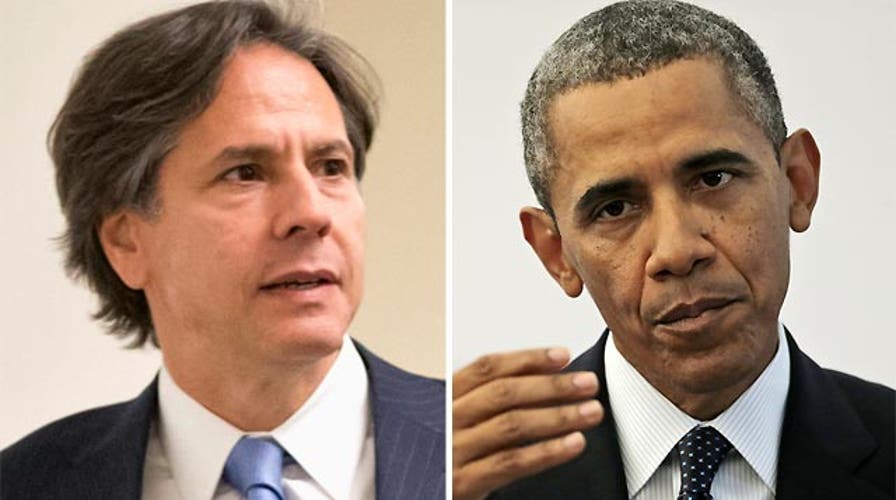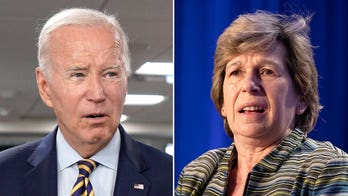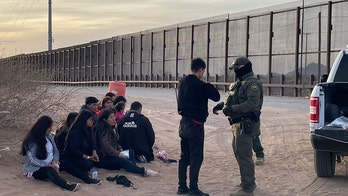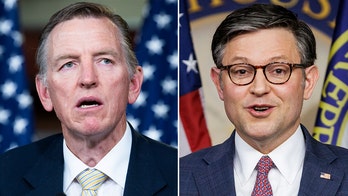Will president order strike on Syria if Congress says no?
Reaction from the 'Special Report' All-Stars
As on-the-record opposition mounts on Capitol Hill to a Syria strike and President Obama prepares to make his case directly to the American people, the big question hanging over the stand-off is: If Congress votes "no," will the president go ahead with a military strike anyway?
The president and his aides are sending out conflicting messages. Reflecting the air of uncertainty around the whole Syria operation, both Obama and a top spokeswoman on Friday appeared to walk back the comments of a key adviser who suggested Obama would back down if Congress votes "no."
But the White House, in the end, left the door open a crack for the president to proceed with a strike even without congressional approval.
"There is no change in our position. As the president has said, he has the authority to act, but his intention is to do so with the approval of the Congress," National Security Council spokeswoman Caitlin Hayden said.
The Obama administration has been fuzzy on that question all week. Secretary of State John Kerry has said repeatedly he is not so much as "contemplating" the possibility of Congress rejecting the use-of-force measure, because that scenario would be too "dire."
But as the projected "no" votes piled up this week, it has forced the administration to contemplate that scenario more seriously. Senate Majority Leader Harry Reid formally introduced the use-of-force resolution on Friday, teeing up a vote for next week. He said he thinks he can round up the 60 votes likely necessary to pass it; but the House is seen as a bigger challenge.
In what initially appeared to be a concession to the authority of Congress, Deputy National Security Adviser Tony Blinken said Friday morning that the president did not intend to act without lawmakers' support.
"The president of course has the authority to act but it's neither his desire nor his intention to use that authority absent Congress backing him," he said on NPR's "Morning Edition."
But Obama, when asked shortly afterward about his adviser's claim on his "intention" not to act without Congress, asserted: "I don't think that's exactly what he said."
Obama also said "it would be a mistake for me to jump the gun and speculate" when asked if he would act without congressional support.
Hayden reiterated the president's remarks when asked for clarification: "As he said in Sweden, he believes they will vote to authorize the use of military force. I'm not going to speculate on the president's decision-making if they don't approve; we think they will," she said.
The text of the resolution itself very clearly leaves the president a rhetorical opening to pursue a strike on his own. The opening of the resolution states "the president has authority under the Constitution to use force in order to defend the national security interests of the United States."
But for the president to claim that authority, after having made a very-public decision to seek the consent of lawmakers, would be a colossal challenge and rebuke to Congress if his resolution is voted down.
Former U.S. Ambassador to the United Nations John Bolton, who has said he thinks the resolution will pass, predicted that Obama -- like British Prime Minister David Cameron -- would not proceed if the resolution fails.
"Here's my prediction. If Congress votes no, he's not gonna do it," Bolton told Fox News on Friday. "He would require a character transplant to stand up against a congressional vote."
The president, before returning to the United States, acknowledged on Friday that winning the backing of Congress is an uphill climb, with popular opinion now running decidedly against a military strike in Syria.
He announced that he plans to address the nation on Tuesday, to explain to the American people his rationale for military action.
"I knew this was going to be a heavy lift," Obama conceded, adding that given the last decade of war, any hint of "further military entanglements in the Middle East" is viewed with suspicion.
"I was elected to end wars, not start them," he said. But he stressed that any U.S. involvement in Syria would be "limited." The president said that if the Rwandan genocide were happening now, "it probably wouldn't poll real well" either.





